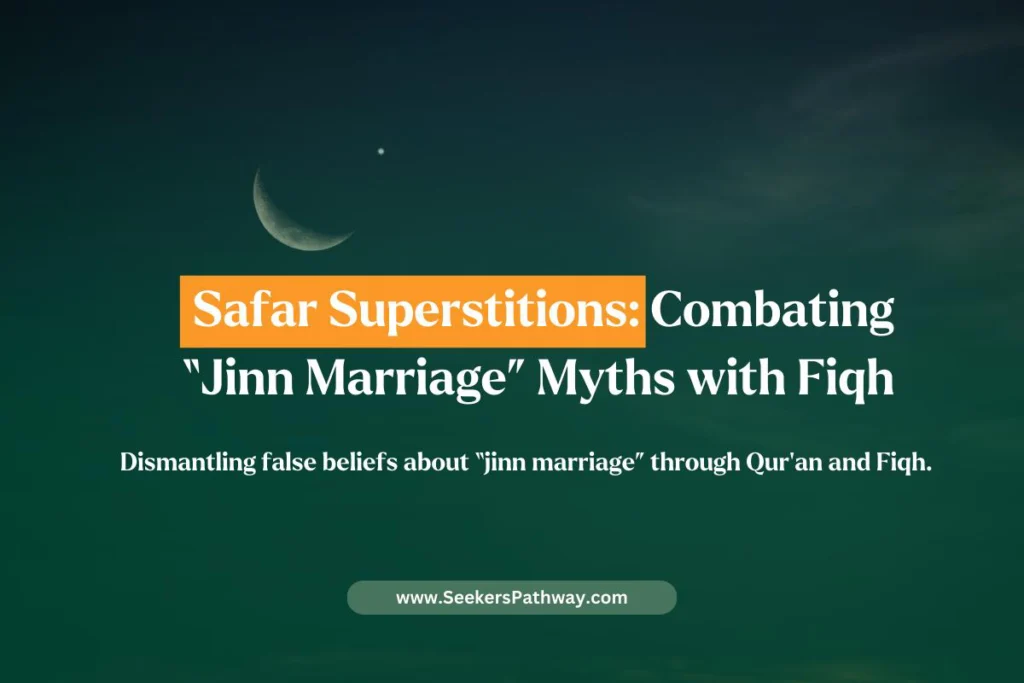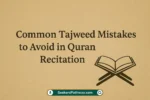The Islamic month of Safar (the second month of the lunar calendar) has always been shrouded in superstition and fear. In some cultures, it is considered a time of ill fortune, sickness, or fighting. One of the superstitions that is very common yet seems to have died out, but has revived again, is that jinn marriages are believed to take place with humans during Safar, and because of this notion, people avoid getting married or planning something big.
Origins of the Myth
The pre-Islamic Arabs considered Safar as a month of evil. During this time, they would put off weddings, business endeavours, and even travel. Some cultures built upon these ideas over centuries, also claiming jinn give approval to secret marriages in Safar, and that human marriages during this month could interfere with or invite misfortune related to jinn participation.
These ideas are everywhere, but are not found in Islamic doctrine. They are relics of Jahiliyyah; they are those practices and beliefs which the Prophet Muhammad ﷺ came to remove.
What the Prophet ﷺ Said
Islam addresses these beliefs directly and unequivocally.
“There is no contagious disease, no evil omen, no Shafar (Safar considered unlucky), and no Haamah (reincarnated owl myth).”
Sahih Muslim, 2222
In this Hadith, the Prophet ﷺ is refuting the beliefs of the people that bad luck follows the month of Safar. He refuted his superstition, reminding the ummah that it is only Allah who decides harm and benefit, not months, not days, not imaginary forces.
Fiqh: No Month is Inherently Cursed
For scholars of all schools of thought, there is no evil inherent in any Islamic month. Allah just created all of time, and He has designated certain months as sacred, not cursed.
“Indeed, the number of months with Allah is twelve… four of them are sacred.”
Surah At-Tawbah (9:36)
It isn’t one of the four holy months, but it is also not a month of committing sins or having bad omens. Fiqh does not advocate postponing marriage, business, or travel during this month.
A belief that “jinn marriage” can meddle with human affairs is more cultural legend than theological reality. In Islam, we are taught Tawakkul, not superstition.

How to Respond as a Believer?
Unlike the avoidance of Safar and spreading of fear, Muslims should:
- Criticize cultural superstitions or myths that are not based on Qur’anic or Sunnah teachings.
- Train family and those in the community with understanding and compassion.
- And maintain normal activities, marriage, travel, study, and business, with no qualm to stop you.
- Do dua and zikr, and have faith that Allah will protect and guide.
Safar is no different from other months; it is important to have good intentions and to work to be close to Allah.
Conclusion
These kinds of superstitions, such as “Jinn marriages in Safa,” have no reality in Islam. They are cultural fears, not divine truths. Islam came to liberate the minds from these preposterous ideas, giving the believers something certain through the Qur’an and the Sunnah of the Prophet ﷺ. By revisiting the truth and shunning the legacy of intimidation, Muslims reinforce their faith and stride confidently on the road to tawheed.
“Say, nothing will ever happen to us except what Allah has destined for us. He is our protector.”
Surah At-Tawbah (9:51)










